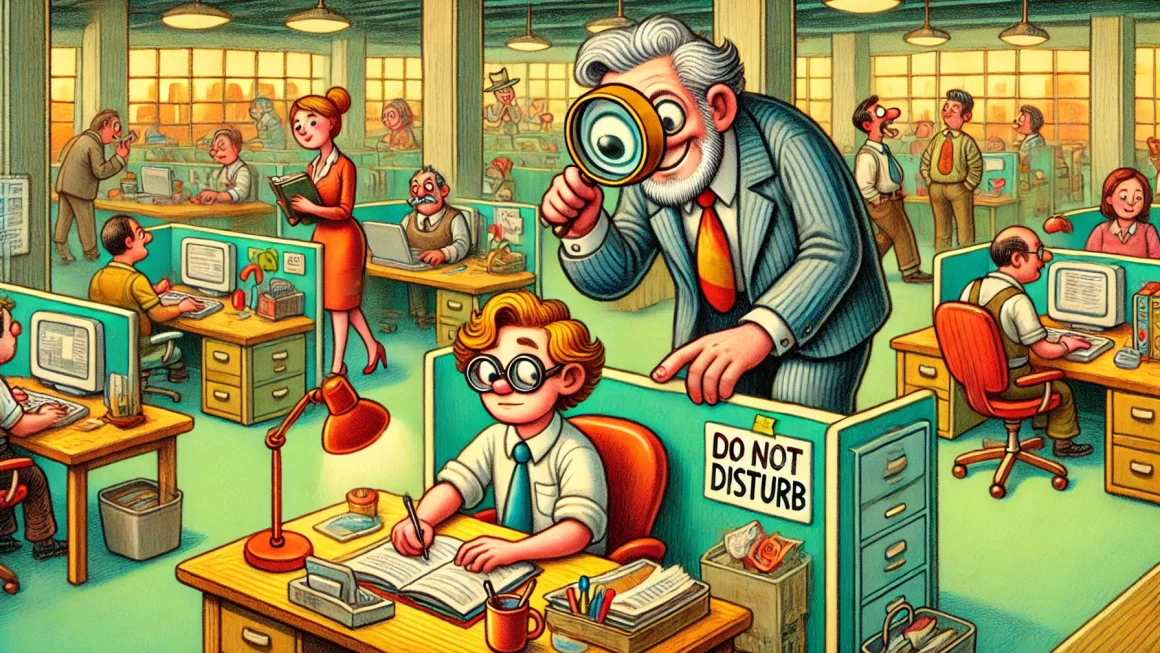Picture this: You’re at the office, knee-deep in spreadsheets, when your coworker winks at you and says, “Hey, if you just tweak this number a bit, we can hit our targets and go home early!” Your mind starts spinning, and suddenly you’re in a moral dilemma more twisted than your last attempt at yoga. Welcome to the world of workplace ethics, where decisions can be as tricky as choosing between watching Netflix or hitting the gym (hint: it’s always Netflix).
The Epic Tale of the Missing Stapler
Let’s kick things off with a story. Meet Raj, a young professional with dreams of climbing the corporate ladder faster than you can say “promotion.” One day, Raj notices his favourite stapler has gone AWOL. After a thorough investigation involving magnifying glasses and whispered accusations, Raj finds the stapler on his boss’s desk. What to do? Confront the boss and risk being labelled a tattle-tale, or let it slide and suffer in silent, staple-less agony?
This might seem trivial, but it’s a classic example of a moral dilemma at work. Do you stand up for yourself and risk confrontation, or do you keep the peace and your head down? Decisions, decisions.
The Friendly Fudge
Let’s spice things up with another scenario. Imagine your team is struggling to meet the quarterly sales targets. Your manager suggests “fudging” the numbers just a little bit to make things look better. It’s just a tiny tweak, right? Wrong. This is where ethics come into play. It’s like that one time you ate your roommate’s leftover pizza and convinced yourself it was just a slice (we’ve all been there).
When you’re faced with these choices, it’s crucial to remember that your actions reflect your integrity. Even small ethical breaches can snowball into a reputation as trustworthy as a social media influencer’s “miracle diet pill.”
Why Ethics Matter (More Than You Think)
Ethics in the workplace aren’t just about avoiding jail time. They’re about building a culture of trust and respect. When everyone knows you’re playing by the rules, they’re more likely to play nice too. Plus, having a reputation for integrity can be your ticket to leadership roles faster than you can say “CEO.”
Remember our post on work-life balance? Balancing ethics is like balancing work and play. It’s all about making choices that respect your professional life while keeping your conscience clear, much like ensuring your Netflix binge doesn’t cut into your work deadlines.
When Ethics Meet Reality: Not Everyone Plays by the Rules
But let’s be real: not everyone in the office is going to play by the same rules. You might be the model of integrity, but your colleague is winning Employee of the Month with more shady tactics than a magician at a kid’s party.
Take for instance, Meera. She’s always on time, delivers her projects early, and has a smile that could melt the harshest critic. Yet, she’s known for using some questionable shortcuts and bending the rules to her favor. What happens when your ethical behavior is overshadowed by someone else’s cunning? It’s frustrating, right? Like showing up to a potluck with homemade brownies, only to find everyone fawning over store-bought cookies.
Real-Life Example: The Whistleblower
Let’s look at a more serious example. Imagine you’re working for a company and discover that it’s dumping toxic waste into a river. Reporting this could cost you your job, but staying silent means environmental destruction. What do you do? Whistleblowing is one of the toughest ethical dilemmas, but it’s also one of the most impactful. The bravery to speak up can lead to significant changes, much like how your honest feedback about office coffee finally got you that espresso machine.
How to Handle Ethical Dilemmas
- Pause and Reflect: When faced with a dilemma, take a moment. Like deciding between avocado toast and a breakfast burrito, give it some thought.
- Seek Advice: Talk to trusted colleagues or mentors. Sometimes, a fresh perspective is all you need.
- Consider the Consequences: Think about the long-term effects of your decision. Will it haunt you like your middle school haircut?
- Stick to Your Values: At the end of the day, your values are your guide. Stay true to them, and you’ll sleep better at night.
Dealing with Rule-Breakers
When you encounter someone who doesn’t play by the rules, it can be disheartening. However, here are some tips to navigate this tricky terrain:
- Document Everything: Keep records of your work and communications. It’s your shield against any foul play.
- Communicate Openly: If it’s safe and appropriate, discuss the issue with the person involved. Sometimes, they might not even realize the impact of their actions.
- Seek Support: Talk to your supervisor or HR. They’re there to help maintain a fair and ethical workplace.
- Lead by Example: Continue to uphold your values. Integrity can be contagious, and your behavior might inspire others to follow suit.
Conclusion: Keep It Ethical, Keep It Real
Navigating workplace ethics can be challenging, but remember, it’s all about staying true to yourself and your principles. The choices you make define your professional journey, much like how your playlist defines your morning commute. So, next time you’re faced with a moral dilemma, take a deep breath, weigh your options, and choose the path that lets you walk with your head held high.
And if you ever find yourself in a pickle, just remember Raj and his stapler. Sometimes, the best solutions come with a touch of humor and a dash of perspective. And remember, even if not everyone plays by the rules, your commitment to ethics will pave the way for a more trustworthy and respected professional reputation.




